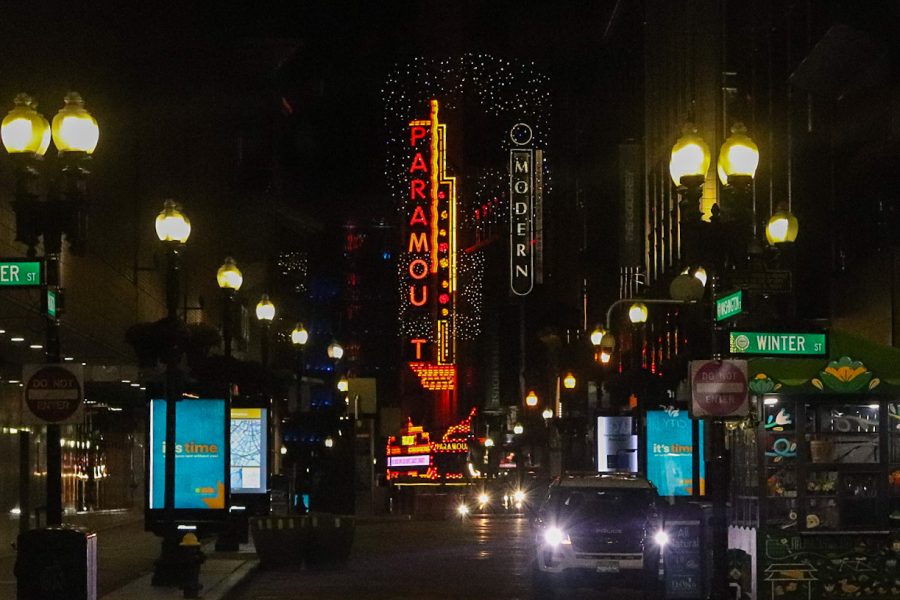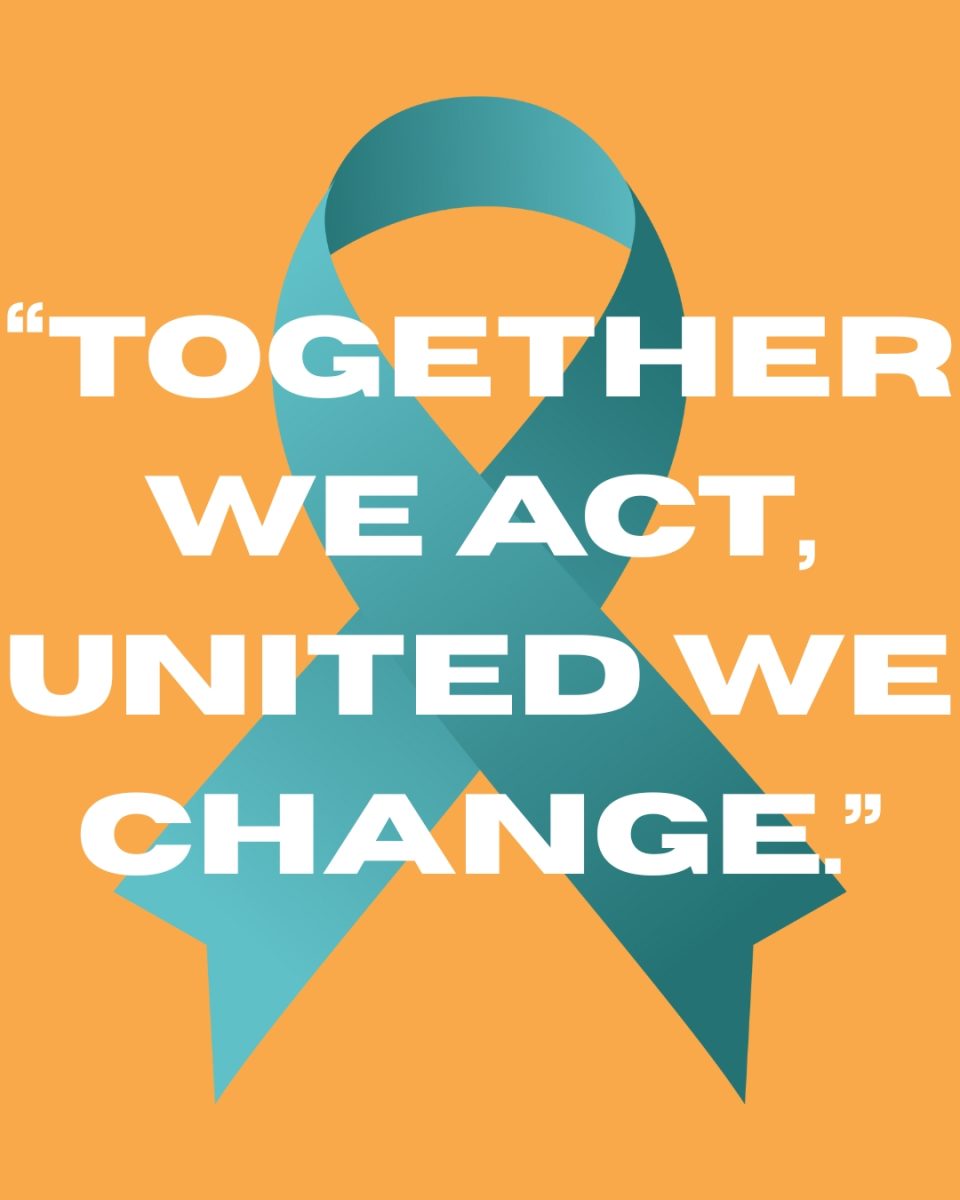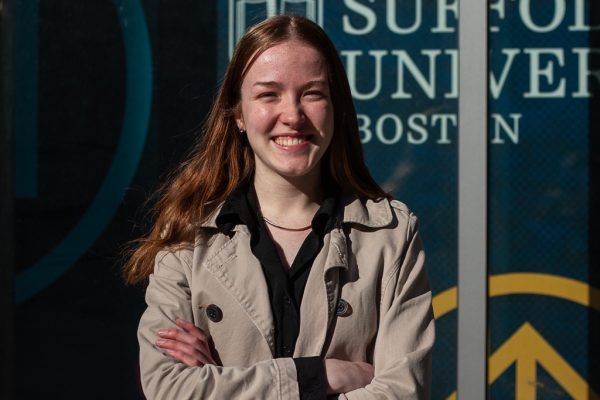Boston Mayor Michelle Wu said she wants to bring Downtown Boston back to life in a plan announced on Oct. 27. With Suffolk University’s large footprint in the neighborhood, the plan has the promise of impacting opportunities and daily life of Suffolk students.
The Downtown Revitalization plan includes the relaunching of Boston Planning and Development Agency’s PLAN: Downtown after it was put on pause at the start of the pandemic. The plan, a collaboration between the Mayor’s Office, the Office of Economic Opportunity and Inclusion and the BPDA, lays out various measures to bring Downtown Boston back to, and beyond, the cultural, economic and social hub it was pre-pandemic.
For Suffolk students, proposed enhancements to cultural spaces and additions of different businesses figure to bolster Suffolk’s offerings for experiential learning, according to Suffolk’s President Marisa Kelly.
“I think there are ways in which some of the revitalization could lead to some different kinds of projects in comparison to what we’ve had before. This is by no means a done deal, but there is going to be a Holocaust museum opening several years from now…We’ve already had conversations about students in our public history concentration, for example, being involved,” said Kelly.
While not all parts of the plan will be implemented immediately, Kelly sees changes occurring in the city that students will be able to take advantage of in the very near future, particularly in the realm of experiencing all Boston has to offer.
“The more that the city is focused on becoming a ‘24-hour’ city,…that will lead to more opportunities for students to engage right around campus in things that are fun, frankly, from a social perspective. Some of those will be happening soon; when City Hall Plaza reopens, it’s been under construction for quite a while now, that will be a nice move. When the Martin Luther King Jr. Memorial is completed in the Boston Common and the fences come down, it’s going to make the Common more welcoming again,” Kelly said.
Through various measures of the plan, including the expansion of affordable housing, the addition of public spaces and improved support for minority-owned startups, Wu aims to make the neighborhood more inclusive, diverse and vibrant.
“We envision Downtown Boston as a space where people from all backgrounds come together. Together with the restart of PLAN: Downtown, this report presents a roadmap for a truly inclusive, round-the-clock neighborhood filled with new homes, diverse businesses, world-class public spaces, vibrant nightlife, and a thriving arts and culture scene,” Wu said in a press release.
In the plan, city leadership aims to create affordable spaces downtown for startups, stimulating both the city’s economy and increasing diversity of businesses that will occupy the city’s central neighborhood. For Suffolk graduates, Kelly predicts this action will provide opportunities to launch successful entrepreneurial careers.
“If the city is able to come to an agreement with Downtown building owners to have reduced lease spaces for startups and creative endeavors, I can imagine that being a huge benefit to our students and our young alumni. As [students] graduate, we have a very vibrant Center for Entrepreneurship,” Kelly said. “We have had many students who start businesses here as students and have gone on to use those as the launching-pads for their career. The more there are spaces right here in our backyard that are focused on creating cost-effective ways for new startups to get their footing, I think that will really benefit our graduates.”
As a major business in Downtown, Suffolk intends to use its purchasing power to support the Mayor’s initiative to help minority-owned businesses gain footing and succeed.
“The Suffolk 2025 Plan includes a focus on using Suffolk’s purchasing power to try to support minority-owned businesses. We have very specific goals to increase the amount of money we spend, whether it’s buying paper or just operating as an institution, the money that we spend on businesses that are classified as minority-owned…I am hopeful that as there are more minority-owned businesses right here in our backyard, that may be a point of intersection that is to say we can spend more university dollars, in ways that we need to operate and have those dollars go right to the businesses that are minority-owned right in our backyard,” Kelly said.
Following shutdowns and changes to working habits caused by the COVID-19 pandemic, weekday foot traffic in Downtown has been nearly cut in half from pre-pandemic levels, according to a study conducted by the BPDA, although weekend and tourism levels have returned to near-normal levels. According to Dr. Rachel McKinney, an assistant philosophy professor at Suffolk, efforts to bring people back into Downtown are essential to the city’s rebound from pandemic shutdowns.
“Part of what makes a city a place where people want to be is that there are already people there. You want a city to be a place that attracts people, you want a streetscape to be a place that attracts people…That’s also what is a motivator, I think, for having a vibrant downtown on weekdays. You want people out and about at lunchtime on weekdays, not just weekends,” McKinney said.
To kick off the relaunch of PLAN: Downtown, the BPDA will host an event on Nov. 9 in Downtown Crossing to give Boston residents the opportunity to gather and engage in discussions with city leadership surrounding the future of Downtown.
















